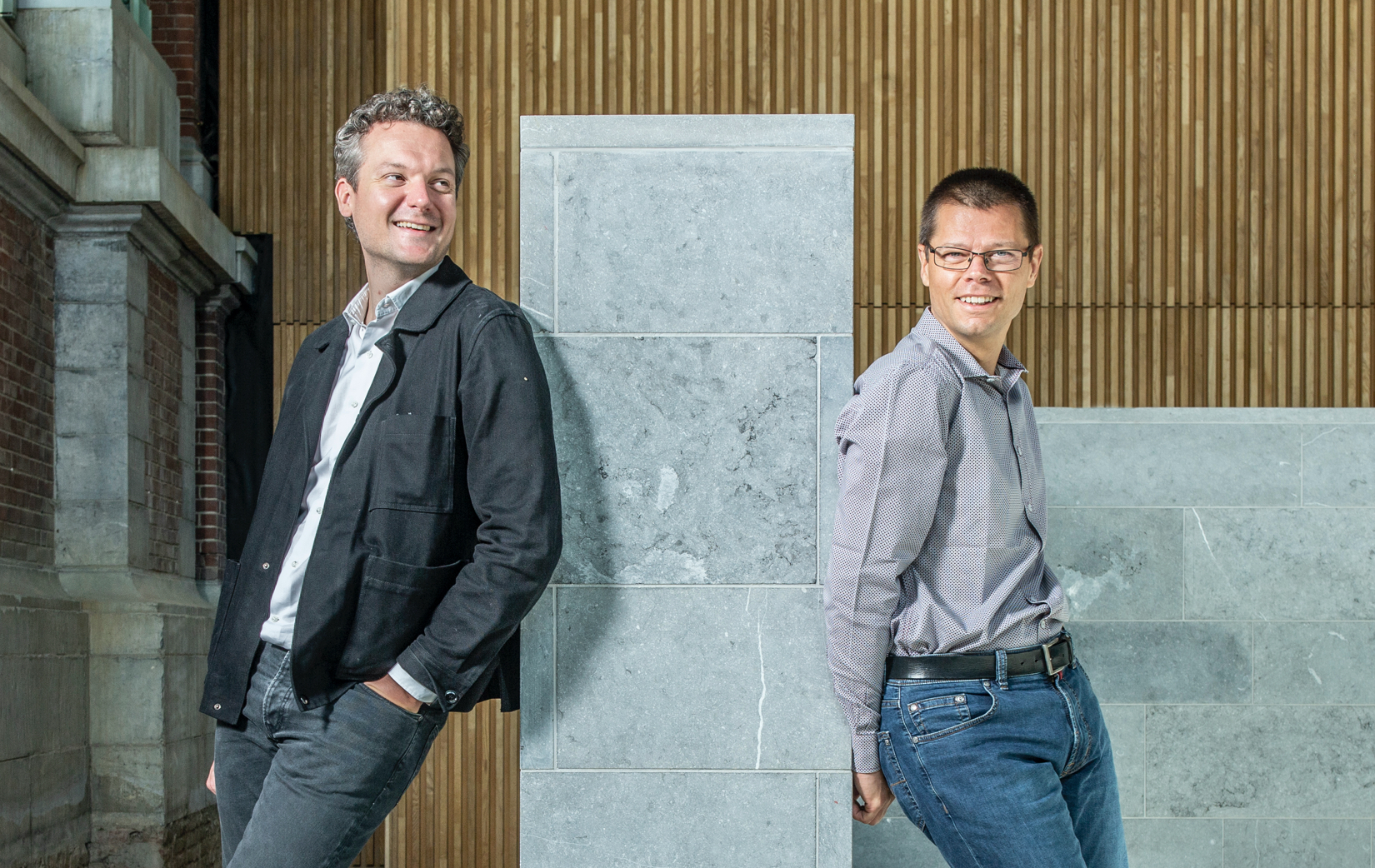 AI
AI
 AI
AI
 AI
AI
Data quality testing platform Soda Data NV today announced the launch of SodaGPT, a data management platform that uses generative artificial intelligence to help users define data quality expectations.
SodaGPT uses generative AI’s natural language processing capabilities and SodaCL’s domain-specific language capabilities to translate natural language queries into data quality tests.
“SodaGPT is the first generative AI-powered tool for data quality, enabling users of all backgrounds, technical or not, to take a no-code approach to naturally express and define data quality expectations,” Soda Chief Executive Maarten Masschelein (pictured, left, with co-founder Tom Baeyens) said in an interview with SiliconANGLE.
At a glance, the announcement highlights how generative AI, the technology behind the enormously popular ChatGPT from Open AI LP and Google LLC’s Bard, can be used within data management to empower consumers and nontechnical users to improve data quality and reliability while reducing the administrative burdens placed on data engineers.
The announcement comes as data quality appears to be declining. One survey found that the average number of monthly data incidents increasing from 59 per organization in 2022 to 67 in 2023.
Soda, which has raised more than $14 million in funding to date, plans to mitigate data incidents by using generative AI to shift data quality management left to nontechnical staff and insight consumers so they can help identify reliability issues earlier in the development lifecycle.
“The idea is based around a self-service contribution model, which enables data consumers to enter natural language code contributions via SodaGPT, which will then be translated into SodeCL, so that these users can define expectations for data quality independently, while engineers can provide oversight to ensure checks are correctly defined before they’re shipped into the data pipeline,” Masschelein said.
This approach not only makes data management more accessible to users without coding knowledge but also reduces the workload of data engineers who have traditionally had to manage the data themselves.
SodaGPT is now entering the data quality tools market, which Research and Markets estimates will reach $5.4 billion by 2030, following an almost 19% compound annual growth rate from 2022.
The organization is competing against a number of key competitors in the market, including Validity Inc.’s DemandTools, a tool used by organizations including Salesforce Inc. and Argyle Systems Inc. for preparing and cleaning CRM data.
Another key competitor in the space is Monte Carlo, which has generated total funding of $101 million so far, and provides a platform for bulk deduplication of data, duplication prevention, and record ownership management.
For Soda, the use of generative AI within SodaGPT will act as a key differentiator to democratize data quality management so that even nontechnical users can improve the reliability of their data.
“With this new tool, Soda is ripping up the antiquated approach to data quality checks built exclusively for a technology audience that can read and write in SQL, instead simplifying the process for data consumers and creating a truly no-code experience to data quality,” Masschelein said.
Support our mission to keep content open and free by engaging with theCUBE community. Join theCUBE’s Alumni Trust Network, where technology leaders connect, share intelligence and create opportunities.
Founded by tech visionaries John Furrier and Dave Vellante, SiliconANGLE Media has built a dynamic ecosystem of industry-leading digital media brands that reach 15+ million elite tech professionals. Our new proprietary theCUBE AI Video Cloud is breaking ground in audience interaction, leveraging theCUBEai.com neural network to help technology companies make data-driven decisions and stay at the forefront of industry conversations.